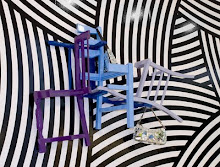As I stated before Gary Sullivan entered a (what is now considered Flarf) poem in a contest on Poetry.com. Feeling as though it was just a mere marketing scheme by the creators of the site, Sulliven intentionally entered this vulgar nonsensical poem to test Poetry.com’s standards of a creative poem. “Mm-hmm” was Sullivan’s first documented flarf poem. Those who reviewed his poem called it, “imaginative, and a fresh new perspective on life” (here). Since then Flarf has evolved into the first movement of the 21st century. Gary Sullivan has also extended his writing to Flarf plays such as “Gray Matter” and “PPL in a Depot” which you can view here.
Flarf uses the internet and all of its glory to its fullest. Usually search engines like Google, Yahoo, etc are used to create these delicious word salads. According to Encyclopedia Britannica, a word salad is “a mixture of seemingly meaningful words that together signify nothing” (Encyclopedia Britannica). It is also very similar to Spoetry (Spam poetry,) where poets use spam emails to create their works. Early Flarf is more juvenile due to focus on bodily functions, intentional typos, “internet talk:” lolz, omgz, TTFN, etc, politics, and most contained offensive language. Even though many consider Flarf inappropriate, some believe it represents a clear new and sharp view of what our culture has evolved into. Especially since Flarf uses the language of our people today, old, young, naive, intelligent. The crazy phrases in Flarf poetry are found through the web, a medium which connects millions. Maybe, someone will even see my blog and use my ideas as an example in a project similar to my own.
K. Silem Mohammad wrote an article on “sought poetry.” In his writing he explains that Flarf is more sought than found. A found poem is something that one “stumbles upon and says, hey that’s poetry” (here). Mohammad states sought poem is the “result of invasive surgeries performed on already mangled bodies” (still here). Flarf poets are surgeons of language. They sort through the words that make some people cringe or even faint and they create a story. These poets give the mangled bodies a new life.





